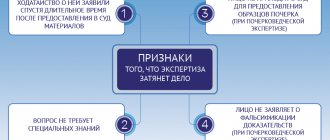When can the state duty be refunded?
The payer submits an application for the return of an excessively collected (paid) amount of state duty to an official or body that is authorized to perform actions of legal significance for which the state duty was collected (paid).
It is impossible to refund the state fee that was paid for the future registration of a marriage or divorce - such decisions must be made thoughtfully and carefully. The settlement agreement must be drawn up in writing as a single document. Concluding a settlement agreement through an exchange of letters is not permitted.
And Art. 103 of the Code of Civil Procedure of the Russian Federation is very muddy and nothing about the world.
it turns out - are you right? And all judicial acts are not legal... I’m talking about the collection of fees in a settlement... When considering a lawsuit in an arbitration court, the return of the state duty to the plaintiff in the amount of 50% of the amount paid can only be carried out when the parties go to a settlement before the court makes a final decision on the case. The general procedure and nuances regarding the return of state duty are described and explained in Art.
333.40 of the Tax Code of the Russian Federation, as well as in Art. 101 Civil Code of the Russian Federation.
If there are no losers, the parties must pay the state fee when concluding a settlement agreement jointly.
But this is a theory. What is the situation in practice, and what should be done to resolve this issue?
State duty in a court of general jurisdiction
The procedure for concluding an agreement in the civil procedural code of the Russian Federation devotes very little space. All issues relating to the content and procedure for reaching agreement are subject to the will of the parties.
In other words, the parties who decided not to wait for the court’s verdict or who decided to resolve the issues of execution of the court decision after issuing a writ of execution must independently agree on all the nuances. About how legal costs for payment of state fees will be distributed in the event of a settlement agreement in the magistrate’s court.
If this issue is not specified, the judge may:
- do not approve the text as a whole;
- return it for revision;
- be guided by the provisions of Part 1 of Art. 98 of the Code of Civil Procedure, when satisfying the plaintiff’s demands, recover legal costs from the defendant or distribute them between the parties in relation to the demands satisfied by the court.
This outcome is unfavorable for the parties who decided to enter into an agreement. Therefore, they must make efforts to independently decide who will bear the legal costs and to what extent. Peace is always a compromise. Each side, striving for peace, is forced to make concessions and sacrifice something. This also applies to the issue of payment of state duty, since its size can reach significant amounts, especially for claims of a property nature.
Return Process
The return procedure is straightforward. It is enough to submit an application to the Federal Tax Service at the location of the arbitration court. It is not difficult to determine which inspectorate serves the court. Her details are contained in the receipt. The application is drawn up in two copies. Copies of documents are attached to them:
- court decision approving the agreement;
- Receipt of payment.
It is important to remember: the application for a refund must be submitted to the Federal Tax Service within 3 years after approval of the settlement agreement - the general limitation period.
Refunds are made by the Treasury to the account specified in the application. Cash payments are not provided for by law. In para. 8 hours 3 tbsp. 333.40 of the Tax Code establishes a payment period of 1 month after registration of the application with the Federal Tax Service. In practice, this period often exceeds that established by law and can reach 6 or more months.
Entry into force of the settlement agreement
The agreement in question comes into force when it is approved by the court. In this regard, the law says the following:
- in bankruptcy cases, the settlement comes into force from the date of its approval by the arbitration court;
- in the arbitration process, when the agreement is approved by the court, it is subject to immediate execution;
- in civil proceedings, the determination to approve the agreement is also subject to immediate execution.
IMPORTANT: court approval of an agreement does not mean at all that the court’s ruling cannot be appealed; on the contrary, procedural legislation allows you to appeal a court’s ruling on approval of a settlement agreement. Thus, on the one hand, the settlement is approved by the court and comes into force, on the other hand, the ruling on approval of the settlement can be appealed.
If the plaintiff has not paid the state fee
In cases where the plaintiff received a deferment in payment of the state duty, upon approval of the settlement agreement, its collection is carried out as follows:
- 50% of the state duty for which a deferment was granted is not collected from the parties;
- the remaining 50% is distributed between the parties.
The distribution of 50% of the state duty is made on the terms of a settlement agreement.
In the absence of such conditions, the court distributes the state duty in proportion to the amount of claims satisfied by the defendant under the terms of the settlement agreement.
If one of the parties is exempt from payment, then payment is made by the other party:
- if the plaintiff is exempt from payment, then the state duty is collected from the defendant in proportion to the amount of claims satisfied by the defendant under the terms of the settlement agreement (in this case, the amount of the state duty to be collected from the defendant is reduced by 50 percent);
- if the defendant is exempt from state duty, then it is collected from the plaintiff in proportion to the amount of claims satisfied by the defendant under the terms of the settlement agreement. In this case, the amount of the state duty to be collected from the plaintiff is reduced by 50 percent (Information letter of the Presidium of the Supreme Arbitration Court of the Russian Federation dated August 13, 2004 No. 82).
to contents
How to return the state duty
If any part of the state duty paid to the budget is subject to refund, the plaintiff may receive funds on the basis of a certified copy of the court ruling approving the settlement agreement and a court certificate confirming the return of the state duty. The certificate is issued by the court hearing the case at the request of the plaintiff.
Consult a lawyer and find out how to act correctly in your situation:
- Who bears the legal costs (state fees) in a settlement agreement.
- Who pays the state fee when the court approves a settlement agreement.
- When concluding a settlement agreement, who pays the state fee?
- How is the state duty refunded in the event of a settlement agreement?
- Is the state duty refunded in the event of a settlement agreement?
- Settlement agreement for division of property
- Settlement agreement in case of an accident
- State duty when filing a claim in the magistrate's court
1.1. The settlement agreement is approved within the existing case. Therefore, there is no need to pay a fee. Glad to help! Thank you for your feedback.
2.1. Was it reflected in the settlement agreement that the presence of other funds and real estate was not hidden?
2.2. If the settlement agreement does not reflect in any way the issue of the presence/absence of other property, you can go to court with a regular claim for division.
The state duty is determined in accordance with the Tax Code and the Code of Civil Procedure. If the price of the claim cannot be determined at the stage of going to court, then the court may accept the claim with a minimum payment with the condition of payment at a later date (a petition must be filed for this)
4.1. The division of property is one requirement and it is considered in the district court. The claim for divorce is considered in the magistrate's court without the requirements for division of property and the state fee must be paid separately.
It's up to you to agree or not. When concluding a settlement agreement, the parties must provide for the procedure for distributing legal costs, including the costs of paying for the services of representatives.
Expert opinion
Stepanov Maxim Anatolievich
Legal consultant with 6 years of experience. Specialization: civil law. Extensive experience in drafting contracts.
If the parties, when concluding a settlement agreement, did not provide for such a procedure for the distribution of legal costs, the court resolves this issue in relation to Articles 95, 97, 99 and 100 of the Code of Civil Procedure of the Russian Federation.
Dear readers! Our articles talk about typical ways to resolve legal issues, but each case is unique.
It's fast and free!
One of the mandatory conditions for approval of the settlement agreement is the inclusion of provisions on the distribution of state duties. This is due to the fact that the Civil Procedure Code and the Arbitration Procedure Code of the Russian Federation include a procedure according to which the burden of paying legal costs falls on the losing party.
If there are no losers, the parties must pay the state fee when concluding a settlement agreement jointly.
- State duty in a court of general jurisdiction
- State duty in arbitration court
- When can the state duty be refunded?
- Return Process
- Legal expenses in case of settlement agreement
Conditions under which a settlement agreement is approved by the court
Important! The court conducting the proceedings in a particular case has the authority to approve a settlement agreement. If the agreement is concluded as part of enforcement proceedings, it will be approved by the court of first instance at the place where it is implemented, or by the court that adopted the executed act.
For approval the following conditions must be met:
- The appearance of the parties at the meeting or a written request to consider the issue in their absence;
- The presence in the text of mandatory conditions regulated by Art. 140 Arbitration Procedure Code of the Russian Federation;
- Availability of evidence of the persons’ authority to sign the agreement (for example, a valid power of attorney);
- Compliance of the terms of the agreement with the law;
- No violation of the rights of third parties by the agreement;
- Compliance with the validity conditions of civil contracts, for example, approval procedures if the transaction is large;
- A clear statement of the conditions, the impossibility of their ambiguous interpretation (which was emphasized by the Supreme Arbitration Court of the Russian Federation in the information letter dated December 20, 2005 No. 97);
- Enforceability of the agreement.
If the court does not identify the prerequisites for refusing approval, a ruling is issued that reflects the fact of approval of the settlement agreement and its terms.
Note! Once approved, the agreement becomes legally binding. If the parties have concluded a new agreement that changes the terms of the previous one, then after its approval by the court, the original settlement agreement is not subject to application (clause 2 of the Review of Judicial Practice of the AS DO dated June 29, 2017).
State duty in arbitration court
Unlike the civil process, which regulates the procedure of legal proceedings in courts of general jurisdiction, the arbitration process pays much more attention to financial issues. This is understandable, because we are talking about much larger amounts.
Payment of the fee can cause significant damage to the property interests of the plaintiff, and requests to defer payment are not always granted by the court when considering the application.
Participants in the arbitration process are free to independently determine how legal costs will be distributed. They usually agree to split the payment costs equally.
But you can deviate from this rule by counting the paid duty as part of the claims to be satisfied, or by distributing it in proportion to that part of the claims on the fulfillment of which the parties have agreed.
Arbitration proceedings contain a provision according to which the plaintiff has the right to expect the return of half of the amount paid. It is fundamentally important that the contract is approved before the decision is made, since the requirements for return do not apply at the stage of enforcement proceedings.
The return of funds is carried out not by the court, but by the tax inspectorate at the location of the arbitration court, where you must submit a corresponding application, attaching the approved text and a payment receipt, from which you can see how much was paid.
What is a settlement agreement and how to conclude it correctly
What to do if the settlement agreement is not fulfilled
Rules for drawing up a settlement agreement under the Arbitration Procedure Code of the Russian Federation, a sample agreement in an arbitration case
Note! The agreement in the arbitration process must be in writing and also contain information about the conditions, including the terms and amount under which the obligation must be fulfilled. Otherwise, the parties have the right to be guided by freedom of contract, provided that an enforceable and clearly understandable document is drawn up.
The provision on how legal costs will be distributed between the parties is not mandatory, but care should be taken to include it in the text so that there is no dissatisfaction with the unfair delimitation of costs by the court.
Important! There must be 1 more copies of the agreement than there are parties signing it.
A sample settlement agreement in the arbitration court can be downloaded from the link: Settlement agreement on the agrarian and industrial complex (sample).
Legal expenses in case of settlement agreement
In addition to paying the state fee, legal costs include:
- expenses for consulting assistance;
- representation in court by a lawyer or other person participating in the process instead of a party on the basis of a power of attorney (order);
- fare;
- expenses for conducting examinations;
- current costs of preparing documentation for the court;
- travel expenses;
- costs associated with the implementation of the settlement agreement.
All of them must be reflected in the text of the concluded agreement.
At the legislative level, none of these types of expenses are regulated, so the court may not pay attention to how the parties agreed to distribute them. A fundamentally important issue for the court is the return of 50% of the fee and the distribution of the remaining 50% among the participants in the process.
The process of returning upon conclusion of peace is not difficult. In addition to the 50% return, in the arbitration process in Art. 333.40 of the Tax Code describes all possible options for the return of a fee or part of it, not only when resolving a dispute peacefully, but also when paying a larger amount in case of an erroneous calculation of the amount, or paying for actions that are not subject to tax.
A settlement agreement is an agreement by which the parties to a case end the dispute existing between them on mutually beneficial terms. It terminates the judicial process.
According to the rules of procedural proceedings, it must be approved by the court to confirm that the parties’ claims against each other have been exhausted. When concluding a settlement agreement, the parties may allocate the legal costs to be reimbursed differently.
A settlement agreement can be concluded at any stage of the process, and even during the execution of a court decision (clause 1 of Art.
139 Arbitration Procedure Code of the Russian Federation, paragraph 2 of Art.
439 Code of Civil Procedure of the Russian Federation). The agreement is subject to court approval.
The state fee upon concluding a settlement agreement may be returned to the plaintiff. However, depending on the stage of the case, the refund may be partial or not at all.
Agreement approval
After the agreement has been prepared, it is submitted to the judge in three copies (if there are two parties to the agreement, if there are more, then there should be one copy for the number of persons and one for the court).
When considering the issue of reconciliation, the court does not fully examine the evidence relevant to the dispute. The data is analyzed only in the part that relates to the agreement. The judge checks the following:
- Do the representatives who drafted the text have the authority to conclude an agreement? Such authority must be expressly stated in the power of attorney or representation agreement, otherwise the court will not accept the agreement.
- Do the parties understand that for the same reason and subject matter of the claim, the parties do not have the right to initiate a dispute in court (Part 3 of Article 151 of the Arbitration Procedure Code of the Russian Federation). These are the so-called consequences of concluding a settlement agreement in an arbitration court, which must be explained to the parties to the dispute.
- whether the agreement drawn up does not violate anyone’s interests. For example, property that is pledged to third parties not participating in the case cannot be the subject of an agreement (this occurs in cases where there are many parties to the dispute, and an agreement is concluded between some of them). It is important for the court not to allow violations of legal requirements, otherwise the approval determination may be challenged and the reconciliation invalidated.
- whether formal requirements are met: are there signatures, date, are deadlines indicated, etc.
If all the above conditions comply with the requirements of the law, the arbitration judge in charge of the dispute approves the settlement agreement by his own determination, this happens in a court hearing. If the parties wish to conclude an agreement at the stage of execution of a previously made decision, then it is approved by the court of first instance, which resolved the dispute initially.
Please note that the project cannot be approved by the court only in part. For example, under the terms of debt payment - approved, under the penalty - not. The agreement is approved as a whole, without reservations , but its subject may relate only to some of the requirements initially stated to the court in the arbitration process. Thus, in a claim to collect a debt and a penalty from an organization, the parties can reconcile on the main requirements, and continue to consider the case regarding the penalty.
If there is a request to consider the issue of an agreement, the judge summons the parties to the court hearing and, in the absence of grounds for refusal, the court issues a ruling that comes into force immediately.
The ruling can be appealed to a second instance within a month. At the same time, according to well-drafted agreements, determinations are extremely rarely appealed by the parties to the arbitration case. In addition, the judge always meets the parties halfway and often helps to correct the text, pointing out obvious contradictions with the law, providing the necessary time for this.
Only in the event that the draft contains clauses that are unacceptable from the point of view of arbitration legislation (for example, obviously unenforceable), the court refuses approval, and a ruling is also made. Such a refusal is also rarely the subject of appeal, since the parties are not prohibited from re-applying for reconciliation by submitting a different project to the judge.
Distribution of state duty in the non-refundable part
Distribution of legal costs by the parties
If a settlement agreement is concluded, the parties can independently determine the procedure for reimbursement of legal costs. As a rule, the parties stipulate that there will be no compensation for costs (i.e., each party pays them independently), or decide to split the costs in half.
- the motive for concluding a settlement agreement is the desire of the parties to reduce legal costs; and therefore
- if there is no agreement on the issue of distribution of state duty, the parties have not reached an amicable agreement. Therefore, the ruling on approval of the settlement agreement must be canceled, and the consideration of the case must be continued.
However, if the parties have not made any provision to this effect in the settlement agreement, the general rules apply:
- the costs of the parties are not subject to reimbursement at each other's expense;
- court costs in connection with the conduct of the process, paid from the budget, payments to experts, etc. distributed equally between the parties.
World at the stage of enforcement proceedings
If an agreement was not concluded during the trial of the case by the court, this does not mean that such an agreement cannot be concluded during the execution of the court decision.
According to Art. 50 of the law on enforcement proceedings, the parties have the right to conclude a settlement agreement until the end of the relevant proceedings by the bailiff. The concluded agreement must also be approved by the court, for which the parties to the enforcement proceedings must apply for approval of the settlement to the court that previously made a decision on the case.
The court will consider the issue of approving the settlement and issuing an appropriate ruling.



